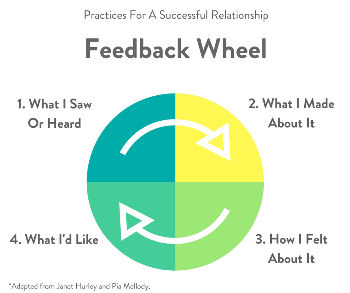RELATIONAL MINDFULNESS: The 5 Winning & 5 Losing Strategies in Relationships
- Hilary Jackson
- Nov 19, 2024
- 3 min read
Updated: Oct 4, 2025
When you’re talking to your partner and your emotions start to escalate, one of the most important questions to ask yourself is “Which part of me is talking?”
Is it the mature, present-based, functional adult part (associated with thinking & planning) which wants a solution? Or is the immature, reactive child part (associated with the emotional brain)? If it’s the second part, we want be proven right, control our partner, vent frustration or anger, or lead with contempt and self-righteousness? These are the losing strategies that are rooted in our early attachment relational blueprints - our "first consciousness".
The kindest and most respectful thing you can do for yourself and your partner is to learn to recognise when you’re in a reactive (child) state of mind and Stop, Breathe, Think & Choose. This is not said in a critical way... we all have these child states. The pathway to true maturation in adult life is to learn to recognise when we are there, and then from that place choose to act in ways that will likely lead to more connection, not further disconnection.
This is called practicing Relational Mindfulness. This daily practice builds what we could call “second consciousness”, consciously learned adult responses to dealing with relationships.
Practicing Relational Mindfulness means you stop and think. Before you say or do anything, ask yourself:
“Am I remembering that I love this person?"
"Is the reason I’m speaking to make things better?” or
“How will this affect my partner?”
These kinds of questions & self-enquiry is how we can make it easy for ourselves to access the five winning strategies, and live more in a state of relational mindfulness.
Five Losing Strategies:
Being Right
a) Arguing about whose view is more accurate
b) Tends to fuel self-righteous indignation in the other
Controlling Your Partner
a) Can be direct or indirect manipulation
b) Remember: no-one likes being controlled; tends to lead to retaliation & payback
Unbridled Self-expression
a) Saying whatever is on your mind, with no kindness or respect for your partner
Retaliation
a) Attacking from the victim position: "I’ll make you feel what I feel"
b) Can be overt or covert (passive aggressive).
Withdrawal
a) This is different from taking a responsible & negotiated time-out or responsible distance taking. This is stonewalling.
b) Withdrawl will often follow on from resignation or retaliation.
Five Winning Strategies:
Shift from Complaint to Request
a) Learn how to speak and ask for what you want
b) Make your requests specific, behavioural & reasonable.
Speak to Repair with Love & Respect
a) Contract with your partner to engage in a 10 minute dialogue or repair conversation
b) Remember love
c) Use the Feedback Wheel: See explanation below
d) Let go of the outcome
Listen With Compassion
a) Listen to understand (you don’t have to agree!)
b) Acknowledge whatever you can
c) Give whatever you can
Empower Each Other
a) Acknowledge the gifts the responder has offered
b) Ask what you can do to help the responder deliver
c) Acknowledge whatever you can & give whatever you can.
Cherish each other
a) Give your partner specific positive feedback & appreciations daily.
b) Nourish yourself & your relationship with time & energy.
c) Practice smart generosity. Look for ways to be generous.
Using The Feedback Wheel

First: Contract with your partner to do the process. Don’t just dump. Ask with respect.
Second: Remember Love
Third: Use the four steps of the feedback wheel:
1. Here is what I saw or heard: (remember: objective, observable reality) - "There were dishes left all over the kitchen from dinner last night"
2. Here is what I made up about it: "You think it's always my job to do them"
3. This is how I feel about it: "I feel like you really take me for granted and I feel hurt"
4. Here is what I would like from you / how you can make this better for me: "Reassure me that you don't think keeping the kitchen clean is all up to me, and if we go to bed with kitchen mess that before we go to sleep you could offer to clean up in the morning. That would feel really good."
5. Let go of the outcome: Don't chase them down or keep punishing them. You've commnuciated clearly, you've owned the story you made up, you've also given them information about how to effectively repair. Let that be enough, and allow your partner to step into that space - the space of caring for the biosphere of your relationship.
(Adapted from ideas from Terry Real, and “The New Rules of Marriage” by Vivian Baruch)





Comments